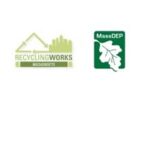MetroWest Daily News reports on a range of food waste reduction efforts going on across the MetroWest region. The Massachusetts Commercial Organics Waste Ban, which went into effect in October of 2014, has motivated increased interest in diverting surplus food and food scraps from landfills and incinerators. The article describes examples of businesses and institutions implementing food reduction strategies in the EPA’s Food Recovery Hierarchy.
- Source Reduction: Framingham State University’s tracking and reporting of wasted food through the LeanPath program is an example of source reduction. By tracking how much food is placed in compost bins and donation boxes, FSU is able to identify opportunities to waste less in the first place.
- Feed Hungry People: Lovin’ Spoonfuls in Brookline helps distribute surplus food to people who need it. For wasted food that is fit for human consumption, like day old bread and blemished vegetables, donation is considered the best strategy.
- Feed Animals: The Walnut Hill School for the Arts in Natick collects food scraps, such as vegetable peels, to feed the animals at Natick Community Organic Farm.
- Industrial Uses: Wasted food not fit for human consumption can be sent to an anaerobic digester to produce energy. The Whole Foods location in Framingham sends food waste to the anaerobic digester Jordan’s Dairy Farm.
- Composting: Hidden Acres Composting in Medway accepts food waste from colleges, universities, and municipalities in MetroWest. The food waste is mixed with leaves and manure to produce compost.
RecyclingWorks in Massachusetts assists businesses and institutions with recycling and food waste reduction through the strategies outlined in the EPA’s Food Recovery Hierarchy. To speak to a waste reduction expert, call our hotline: (888) 254-5525 or email us at info@recyclingworksma.com.

